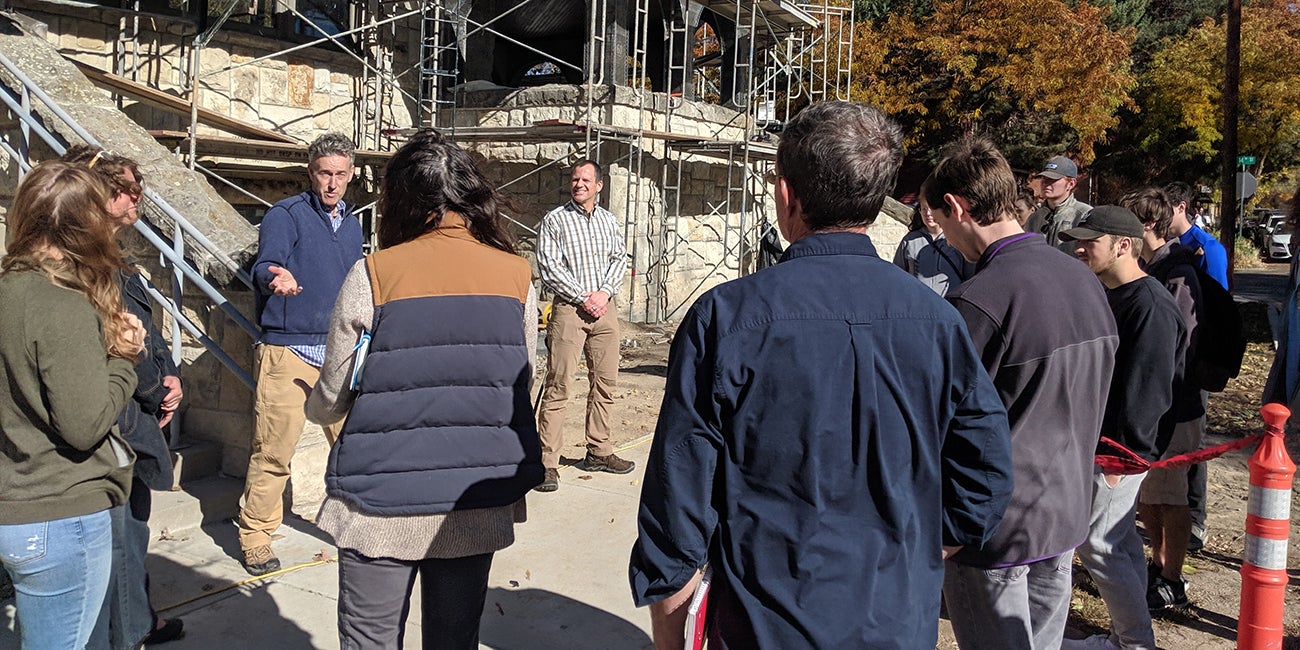All faculty who have academic interests in environmental issues are invited to participate and support the Environmental Studies program and especially the program learning outcomes. Every major and minor degree has a need for a robust structure to support the regular functions of education: teach classes, advise and mentor students, revise curriculum, facilitate community engagement, conduct research and more. We envision a tripartite system of participation and service within and beyond SPS, which includes core faculty, a rotating University-wide advisory board, and working groups. The goal is to have a conscientious, transparent, and deliberate mechanism for faculty engagement and insight into the interdisciplinary program that balances participation and insight from across the range of faculty roles.

1. Environmental Education Certificate
This working group is designing an environmental education certificate in conjunction with the outdoor recreation program, the STEM-Education program, as well as community partnerships including Bogus Basin and BUGS. The certification will provide students with training and experience teaching and leading environmental topics in educational settings.
2. Public Lands Boot Camp
A working group of faculty and federal and state agency employes are designing a summer field experience to provide insight into land management practices. Students will take immersive classes and solve a relevant management problem on location in Idaho, acquiring credits that will make them more competitive for public lands stewardship careers.
3. Masters in Environmental Management
A working group of faculty and researchers from the Idaho Policy Institute have commissioned a study to determine the market for a Masters in Environmental Management degree. This program would have both thesis and professional tracks and seek to meet the needs of employers in Idaho and across the nation in areas of sustainability, risk and resilience management and environmental policy analysis and implementation.
4. Storyboard Reflection Journal
Through the storyboard program, faculty have developed a reflection journal that will guide students through the reflective process to help them develop a stronger sense of purpose and ownership over their major and their live aspirations. The journal will prompt them to ask and answer questions about their classes, their skills, their experiences and their future and record them in the analog journal during their journey toward the degree.
Contact
Contact sps-admin-support@boisestate.edu if you have suggestions or want to participate.

Program Governance
Core Faculty
- Lines in SPS
- Expected to meet +/- 1 month
- Expected to teach core courses in program
- Expected to serve on working groups
- Expected to contribute to PAR/assessment
- Listed as core faculty on website and in catalog
Advisory Board
- Includes core, also reps from broader Univ department in degree
- 3 year renewable terms, at discretion of Program Director
- Expected to meet +/- 1 time semester
- Expected to report back to department, “liaise”
- Contribute expertise, shape trajectory of program
- Contribute disciplinary courses from across campus (in core, systems, and electives)
- Contribute to working groups as necessary
- Listed as advisory board on website and in catalog
Working Groups
- project -centered committees for specific areas
- Members at discretion of Program Director, need not be Core or Advisory Board
- Opportunity to shape program focus, offerings
- EXAMPLES:
Aligning, updating ENVSTD 121 - Environmental Education Certificate- (coordination with Bogus Basin)
- Storyboard Reflection Journal
- Public Lands Boot Camp-(summer immersive field experience)
- Masters in Environmental Management Working Group